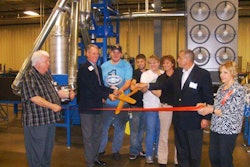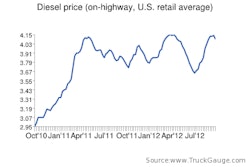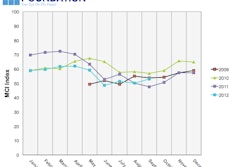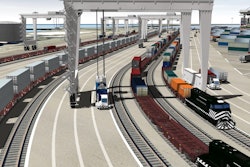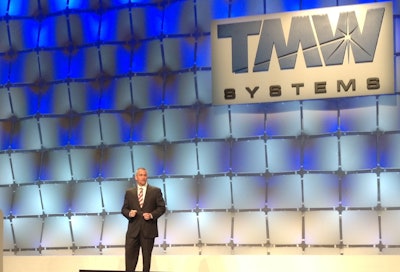
Wangler used tablet and handheld devices to illustrate how technology has limited value without connectivity. Palm and Microsoft tried to get people to like tablets in the late 1990s. Apple saw the popularity of its Newton quickly fade. The remarkable success of the iPhone, iPad and Android devices today is not because of the sleek design and simple user interfaces. The ubiquity of wireless connectivity is driving the demand.
“We’re constantly making new connections and adding connectivity without thinking twice, because convenient access to information—almost any kind of information, has intrinsic value for us,” he said.
Innovation in the supply chain and transportation follows the same pattern of expanding the options of connectivity, he said.
“In the coming years, I believe we’re going to see continued improvements in asset utilization coming from greater connectivity between fleet operators and their drivers. Even today, the push for connectivity is increasing from shippers themselves,” he said.
“I think this increased desire for the information that comes from tighter connectivity between shippers and transportation providers is at the heart of an emerging trend in the industry, and that’s the convergence of roles among transportation service providers,” he continued.
Wangler said the company’s latest product developments center on connectivity and have positioned TMW’s transportation management software to serve “an entire spectrum of surface transportation business needs.”
The company’s release of TMW Mode Planner and the TMW Transportation Modeler, among other products, marked the first phase of integrated functionality developed to serve the complex needs of diversified transportation service providers, with or without fleet assets, he said.
With these new products, customers of TMW Systems can provide more strategic and higher value services to their customers.
The TMW Transportation Modeler is designed for bid proposal and strategic network planning and TMW Mode Planner is used to automatically plan customers’ shipments into optimized loads in order to produce lowest-cost transportation options to be executed using TMWSuite.
The products leverage sophisticated algorithms based on Appian DirectRoute to consider consolidation and mode shift opportunities, lowest cost carrier and carrier performance levels.
TMW Systems acquired Appian Logistics Software, already a noted provider of routing and scheduling software to private and dedicated fleets, in 2011. The TMW Transportation Modeler is offered as a stand-alone, multi-modal freight network simulation and analysis tool for optimized logistics planning and requires no TMS or dispatch integration.
“Historically, the transportation management systems that shippers or leading 3PLs used for order management, load consolidation and shipment planning evolved separately from the technology that carriers were using,” Wangler said.
He added that bridging the business needs and functional requirements between consumers of transportation services and providers of those services is the key to making the best use of all available transportation resources in an era of limited capacity.
The keynote address introduced what the company claims is an industry first—the capability to optimally plan customer shipments for the lowest total transportation cost across a company’s own assets as well as external carrier resources in the same automated process, using the new Mode Planner product.
This capability offers benefits in efficiency, improved asset utilization and profit margins for shippers with private fleets that also make use of commercial carriers, he said. It also serves the growing number of diversified transportation service providers with their own assets that manage logistics and external carriers on behalf of their customers.
Wangler’s Sept. 24 address to the almost 1700 attendees at the TransForum 2012 User Conference and Exhibition, held at The Peabody Orlando in Florida, opened a conference marked by significant product releases across all the company’s lines of business and heightened visibility for TMW Cloud Services. Cloud Services provides transportation-industry-specific application hosting and IT consulting services, addressing growing interest in hosted and SaaS delivery of transportation and fleet management technologies among TMW customers.
With a range of offerings from SaaS subscriptions for asset maintenance software and TMS solutions for smaller carriers, to Infrastructure-as-a-Service for firms outsourcing their enterprise hardware requirements, the option of TMW Cloud Services frees customers to choose a delivery method for any TMW software technology that fits their unique business requirements and constraints.

